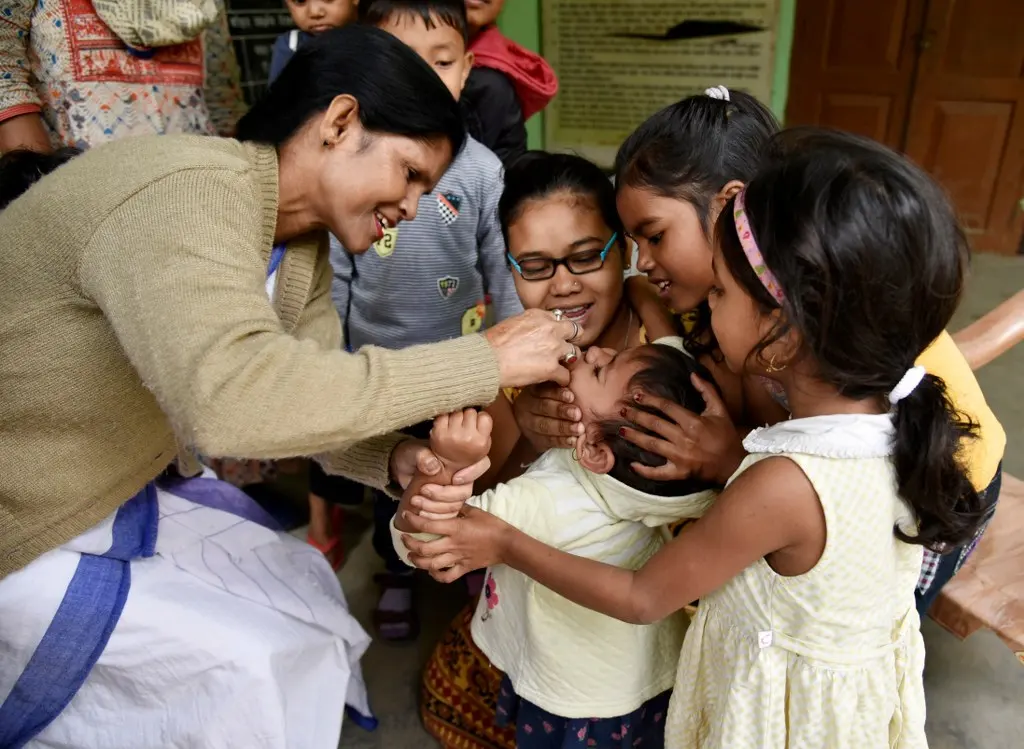The global initiative to eradicate polio has a key prevention tool: the novel oral polio vaccine type 2 (nOPV2), developed in collaboration with experts and organizations from various countries, including FIDEC in Latin America. In 2023, the World Health Organization (WHO) moved to stage C for the use of this vaccine, so it is now the first choice for controlling outbreaks of circulating vaccine-derived poliovirus type 2 (cVDPV2). By the end of the year, this vaccine is expected to receive prequalification and final marketing approval. Approval will be critical in Western countries such as the United Kingdom and the United States, where cVDPV2 has been isolated from sewage water.

“On very rare occasions, if a population is seriously under-immunized, and other risk factors are present (crowding, poor hygiene, and tropical climate), the probability that the Sabin [vaccine] viruses can mutate or recombine and change to vaccine-derived polioviruses exists, if there are enough susceptible children for the excreted vaccine-derived polioviruses to begin circulating in the community,” explained the Pan American Health Organization. In July 2022, an unvaccinated person from a community vehemently opposed to vaccines in the State of New York developed polio caused by cVDPV2.
Therefore, the only protection against polioviruses, whether wild-type or vaccine-derived, is maintaining high vaccination coverage rates in communities. Past experience indicates that the circulation of vaccine-derived polioviruses can be rapidly stopped with two or three high-quality rounds of vaccination in successive campaigns. The solution is the same for all polio outbreaks: every child should receive the oral polio vaccine several times so that polio transmission is stopped, regardless of the poliovirus origin. The novel cVDPV2 vaccine has been modified to be more genetically stable than the Sabin strain and less likely to cause polio cases from the vaccine-derived virus.
In November 2020, the nOPV2 received the recommendation for use under the WHO’s Emergency Use Listing (EUL) Procedure to have a rapid roll out. The Global Polio Eradication Initiative (GPEI) 2022-2026 Strategy largely relies on scaling up nOPV2 use, but it also aims to improve vaccination campaign planning and execution, and thus increase vaccination coverage to avoid “zero-dose” children, who have received no essential immunization. For this reason, FIDEC conducted a phase III, randomized, open-label, controlled study to evaluate the safety of nOPV2 and its ability to elicit an immune response when the interval between the doses administered to infants varies. The study began in the Dominican Republic in late 2021, and 900 infants were enrolled at two centers. Follow-up ended in 2022.
These results were presented to the WHO’s Strategic Advisory Group of Experts on Immunization (SAGE) in early 2023. After evaluation, SAGE recommended using the nOPV2 two-dose schedule for outbreak response, with doses separated by a short interval of one to two weeks. In addition, the study carried out by FIDEC has recently been accepted for publication in the journal Lancet Infectious Diseases.
Interview with Ananda Bandyopadhyay, Deputy Director-Polio, Bill & Melinda Gates Foundation.
While the road to eradication remains challenging, the threat of polio reemerging proves the need to continue striving to ensure a polio-free world. FIDEC is committed and plays a crucial role to achieve this public health goal. Supported by the Bill & Melinda Gates Foundation, ten years ago they conducted a study in Latin America to assess intestinal immunity induced by the inactivated polio vaccine (IPV); now FIDEC will sponsor a trial to assess pharyngeal immunity and its role in interrupting respiratory transmission of polioviruses. This knowledge is much needed, given the isolation of cVDPV2 in developed countries, which have only included the IPV in their national immunization programs over the past 25 years. The study, in collaboration with the International Centre for Diarrheal Disease Research, is expected to include 500 infants in Dakha City, Bangladesh. It is planned to start by the end of 2023, since the protocol is under evaluation by the country’s regulatory authorities.
Quotation from the Pan American Health Organization was obtained from their official website.